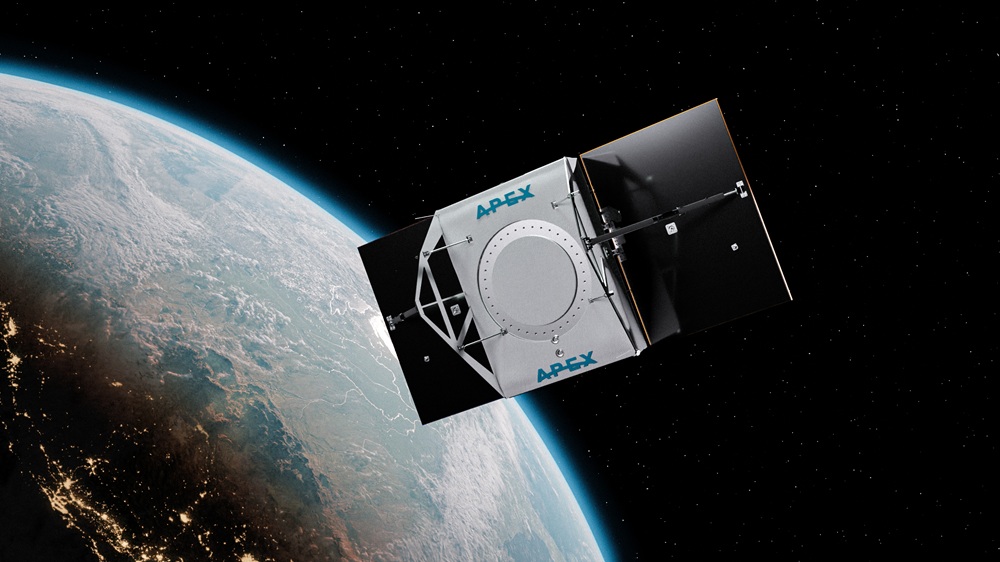LOS ANGELES: Apex, a pioneering spacecraft manufacturer known for its productized, high-rate configurable satellite bus platforms, today unveiled Comet, the largest satellite bus in its expanding product lineup. Designed with a distinctive flat configuration, Comet is tailored to meet the demanding needs of commercial customers launching high-power low Earth orbit (LEO) missions, including Direct-to-Device constellations, as well as government clients requiring large aperture payloads for advanced sensing and defense applications.
Comet stands out by delivering over 5 kilowatts of continuous power to its payloads, a significant capability for high-demand missions. Its innovative flat-pack design allows the satellite to stack efficiently within a 5-meter launch vehicle fairing, enabling more satellites to be launched per rocket. This stacking capability not only maximizes launch vehicle utilization but also drives down deployment costs, making Comet an economically attractive option for large-scale satellite networks.
Ian Cinnamon, CEO of Apex, highlighted the strategic versatility of Comet, stating, “From cell phone towers in space for consumer technology, unique sensing missions, or as an interceptor platform for Golden Dome, Comet is the clear choice to accelerate the most ambitious space missions.” The platform is engineered to support advanced antenna systems, facilitating expansive satellite constellations that serve both commercial markets and national security objectives.

Comet complements Apex’s existing product suite, which includes the Aries and Nova satellite buses. Aries, a 100-kilogram class bus, recently celebrated its first full year on orbit in March 2025, marking a milestone for Apex’s rapid production and deployment capabilities. Nova, introduced in 2024, is an ESPA-Grande class platform designed to support payloads up to 300 kilograms, targeting mixed-use constellations with demanding performance requirements. Comet, by contrast, supports payloads exceeding 500 kilograms, positioning it as the largest and most powerful option within Apex’s portfolio.
Apex’s approach to satellite bus manufacturing is distinguished by its focus on productization and configurability, enabling rapid delivery and scalability. This strategy avoids the lengthy lead times and custom engineering typical of traditional satellite manufacturing, allowing customers to access reliable, configurable platforms delivered directly off the production line from Apex’s Los Angeles facility.
The company’s growth trajectory is underpinned by significant financial backing. Earlier this year, Apex secured $200 million in a Series C funding round led by Point72 Ventures and 8VC, with participation from Andreessen Horowitz and other investors. This capital infusion is earmarked to expand production capacity at Apex’s 50,000-square-foot manufacturing site, aiming to ramp up output to 12 satellite buses per month to meet surging demand from commercial and government sectors, including potential contracts related to the Pentagon’s Golden Dome missile defense program.
Founded in 2022, Los Angeles-headquartered Apex has rapidly established itself as a leading supplier of standardized satellite bus platforms designed to accelerate space mission deployment. With Comet, the company is poised to address the growing market for high-power, large-payload LEO satellites, supporting a broad range of applications from consumer communications to national security.





